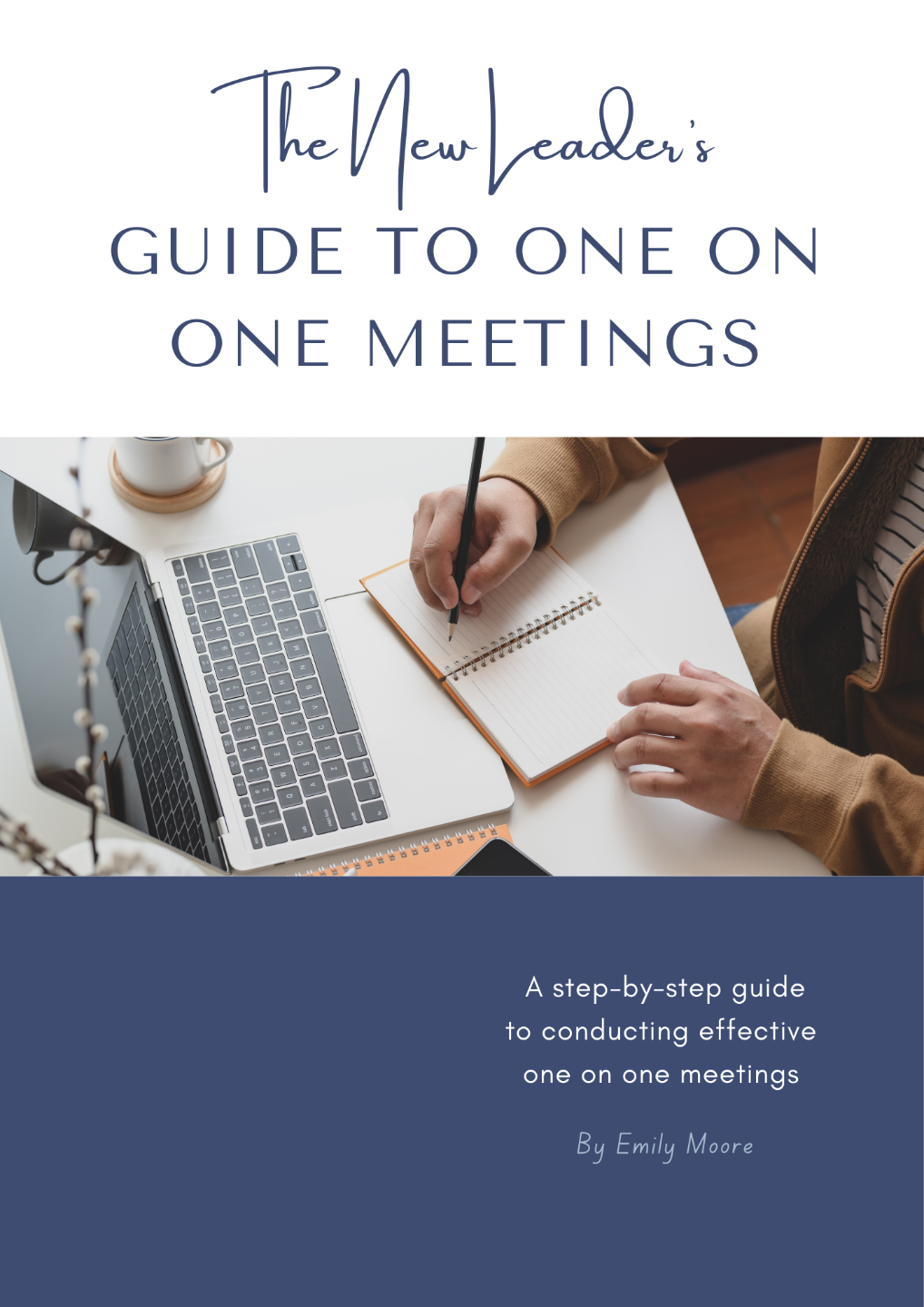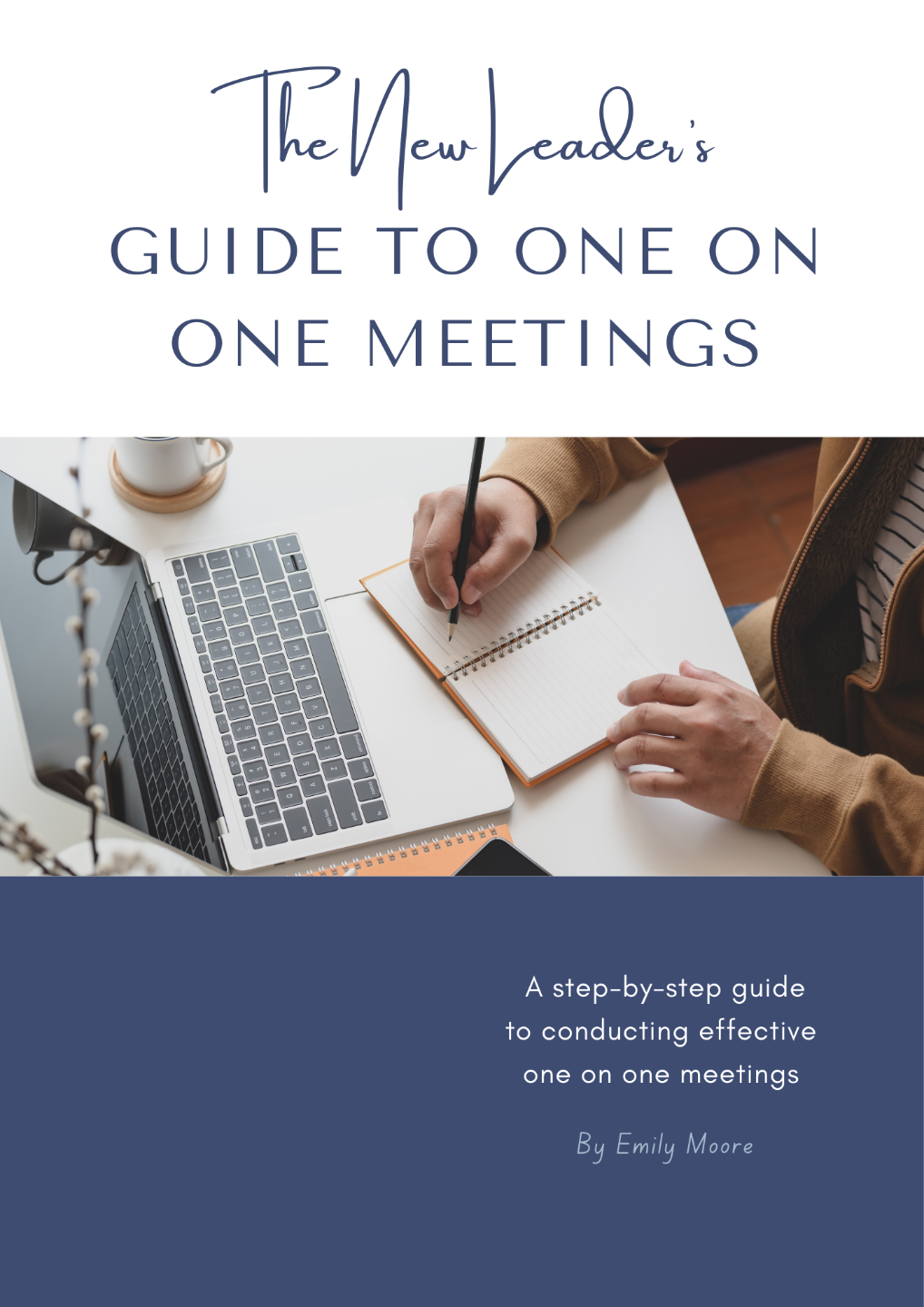
How to Approach Difficult Conversations as a New Manager
Sep 10, 2024
Tell me if this hits home for you?
You are busy working away when you are made aware of a situation that needs to be dealt with and it needs your attention.
Maybe it’s someone’s performance or attitude. Maybe there’s some conflict heating up between two members of your team.
Regardless, you know this will require...a difficult conversation. Gulp!
You know you need to address it, but you just don’t know how to start. Or what to say in the middle. Or how to wrap it up.
Check out this guide → 25 Helpful Phrases for Difficult Conversations
So maybe you avoid it.
Just temporarily. You’ll eventually deal with it (or maybe you secretly hope it will just resolve itself).
But then something comes up and you get busy or sidetracked.
Now that performance issue someone was having just cost the company money or resulted in a customer complaint (that you also have to deal with). And that conflict between your team members escalated…someone has been offended. People are taking sides.
What ever the situation, the best time to address a situation is as soon as you’re made aware of it.
The longer you leave it, the more difficult it can become.
If you are in the camp that tends to avoid these conversations, well you my friend are not alone!
It is probably the number one thing I am asked about (in some form) by managers and leaders at all levels.
Yes, I have worked with CEOs who avoid them too.
This is also probably one of the most overlooked aspects of leadership training (that’s if you’ve received any). And with the potential outcome of these conversations having such a big impact, good or bad, it’s understandable why they are met with some resistance.
Now if you’re waiting for me to tell you there’s a hack to get you out of them…there’s not.
They are inevitable. You will need to have difficult, uncomfortable conversations at some point throughout your career as a leader.
But there are ways to make them easier on you and the person you are having them with (let’s not forget we’re dealing with people and these conversations are difficult for them too).
Preparation is key so here’s what I suggest to help you feel more confident and prepared for these conversations:
Start with a mindset shift
If it’s really tripping you up that this conversation is going to be difficult, change your attitude to this conversation is important. This may seem like a small, insignificant change, but starting with the right frame of mind can have a positive impact on the success of the conversation and put you at ease a little too.
Know your why
Ask yourself why this conversation needs to happen and what’s the outcome of it not happening. Think of this as your North Star. Knowing this will help you help you stay focused on the issue and committed to a resolution during the conversation.
Prepare and practice
Gather all the facts and information you’ll need, along with any questions you may need to ask then rehearse what you plan to say. I know this seems silly, but it can be really helpful with you staying on track during the conversation. This will also help you with how to start and what to say during the conversation.
Keep the discussion straightforward
Stick to the facts and use simple language. Focus on the behaviour and the impact it has on the individual’s performance or the team/workplace. If the conversation starts to stray or you get way off topic (both are well within the realm of possibility), bring it back to the issue, the behaviour, and the impact.
Practice active listening and empathy
This is a crucial step because the reality is, we don’t know the other person’s “why” just yet. Ask compassionate questions with the intent to fully understand the situation and the other person’s perspective.
Don’t feel pressure to have a decision in the meeting
You usually never know what will be said in these meetings, so don’t go in with the outcome already decided. Remain flexible and accommodating. Take a minute after you’ve received and reviewed all the information from the meeting, then schedule some time to discuss any outcomes.
Follow-up
After the discussion, ensure you check in. This will show your commitment to ensure the situation is resolved. It will also give you and the other person a chance to add anything after they’ve had a minute to think about it and collect their thoughts.
My number one tip with difficult conversations is to be proactive! You will not always be able to avoid these conversations, but if you are having regular one on one meetings with your team, you will be able to detect issues and intervene early.
Difficult conversations regarding someone’s performance, attitude, or conflict are substantially less difficult when you address them early. They can often require simply bringing an issue to someone’s attention or providing gentle coaching in the early days, compared to full-blown intervention, multiple meetings, or write-ups the longer you leave it.
And as you become a more seasoned, superstar leader you’ll be able to smell these conversations coming a mile away and get in front of them right away.
Lastly, I will add that this is like any other skill you need to learn and it will require practice. The more you have these conversations, the more confident you’ll be going into them. You’ll start to see what works and what doesn’t. You’ll start to find your own language and style when it comes to addressing concerns. You’ll get to experience and witness all sorts of human emotions and behaviours and while this can be uncomfortable, it will only help you be a better leader.
I used to really hate having anything that resembled a difficult conversation, but now I welcome them (I hesitate to say I enjoy them. That’d be weird, right?). I find it truly interesting, humbling, heartbreaking, and sometimes laughable to hear the other person’s perspective. Human behaviour and experiences truly fascinate me.
So tell me, have you had any success with having difficult conversations? Or do you have some horror stories?
Let me know in the comments!
Happy Leading!
Emily



